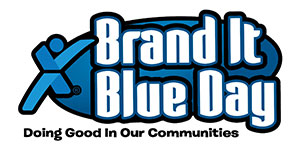From job search to interview to final offer, we’re here to help.
A job search is stressful for numerous reasons. Chief among the rest—you need money to support yourself and your family. Secondary concerns include finding your professional persona, the sheer force of will and attention it takes to job search for hours every day, and the fear that comes after each interview (did I get the job or not?).
Here at Movin’ On Up, we recognize that all of these stresses make it hard to keep going. It can be easy to give up. But we won’t let you. We’re here to encourage you with a plan for each stage of the job search process.
- Job Search
Searching online. Networking. Social media. All cogs in the job search machine. You have to search to get a job—that much is obvious. The problem is the job search is a job in and of itself. If you really want to get anything out of it, you have to put time into it. Eight hours a day if you can. It’s not just a hobby or a side activity. When you’re unemployed, the job search is your job. Except that you won’t see a payoff until you land the job.
Don’t forget to organize the needs a job must meet for you. These include salary requirements, paid time off, and insurance requirements, among other things. If you aren’t sure what kind of salary you should be shooting for, go online and find out what others in similar positions are being paid. Glassdoor.com is a great resource for this.
What can you do to make the search easier? Job search in bursts. Don’t spend your entire day staring at the screen. Take a break every once in a while to take a walk or talk to a human being.
You should also set goals and keep track of your progress each day. That way you’ll see that you’re making headway every day, bit by bit.
Above all else? Vary your job search. Don’t put all of your eggs into the online job search basket. Talk to a recruiter at a staffing agency. Attend networking events. Politely and tactfully ask friends and family members if they know of any job openings. Be on LinkedIn and Facebook—even if you don’t see the point in social media, there’s no reason not to be online. Creating an account is incredibly easy.
If your talent is something you can develop in your spare time, do it. If you’re a writer, write. Try to find some freelance gigs. If you’re a receptionist see if you can improve yourself in that area with online training. Your personal development plan will vary depending on your job field.
Avoid locking yourself into one type of job. Look at your skills and apply them to other industries. It’s much easier to find a job when you have a job. So, even if the job listings you see aren’t for your dream job, those jobs can nonetheless be stepping stones on your way to the top.
- Before the Interview
Congrats! All of that hard work has paid off. You have an interview. Now what?
Don’t let your job search efforts go to waste. Treat this like the last interview you’ll ever have. Research the company online. Know their mission statement and their company culture. Try to find information on what could be your future department and who your interviewer is. If there are any videos online, find them! The first step to succeeding in any interview is being well prepared. Start a list of questions to ask at the end of the interview. You want the interviewer to see that you truly want the position.
The night before your interview, try to get rid of anything that could possibly make you late. Set out your clothes, find your keys, and get plenty of sleep. Make sure the coffee is filled, and figure out a healthy breakfast plan.
Use Google maps or another navigation tool to plan your route ahead of time. Doing all of this now will make the next day much easier.
- The Interview
This is it. You’re in the interview room. First thing? Be nice to everyone. Even if the receptionist spills coffee all over your shirt. You never know who has a close relationship with the boss, and you want to look good. Plus these could be your future coworkers! There’s no reason to bring a bad attitude to work.
Once you’re in the room with your interviewer, shake their hand. Make eye contact. But try to avoid staring into their eyes the entire interview.
Answer any questions with the truth. The short truth. Don’t talk about your family or your feelings. Those are important, but not to your interviewer. Not now at least. Save those stories for when you get the job.
And when the interviewer asks if you have any questions? Say yes. Then ask the questions you carefully prepared the night before. They should be about the position, about typical days in the office, and about the company culture. Questions that are not only helpful for you, but also show your interest in the company itself. Make sure to ask about next steps. When you know the company’s plan for next steps, you can adapt your follow-up plans to that schedule.
- After the interview
As soon as you can, write a handwritten note to your interviewer. Reference your interview with a note about something you truly found interesting. Remember, you want to show that you care.
Since you definitely nailed the interview, pour all of that positive energy into continuing the job search when you get home. Show them all how awesome you are.
If you don’t hear back within the time-frame specified by your interviewer, don’t be afraid to contact them again. Bring up another reason this job is right for you, and then let it go.
- The job offer
It’s finally happened. You got the call. Now you have to negotiate. Be smart. You know your budget and how much money you need (at least at a minimum). If interviews are few and far between, you may need to choose between waiting longer for your dream job and taking something not as great in the meantime. Just remember—this one job doesn’t have to be the end all be all. Any job is better than no job when you have bills to pay.
Have any questions about any of the job search steps? Let us know in the comments below!







